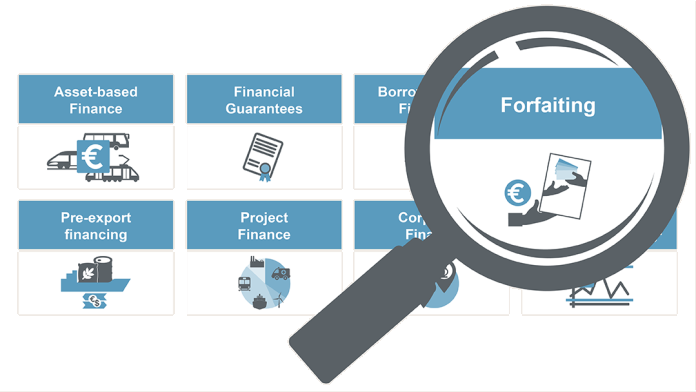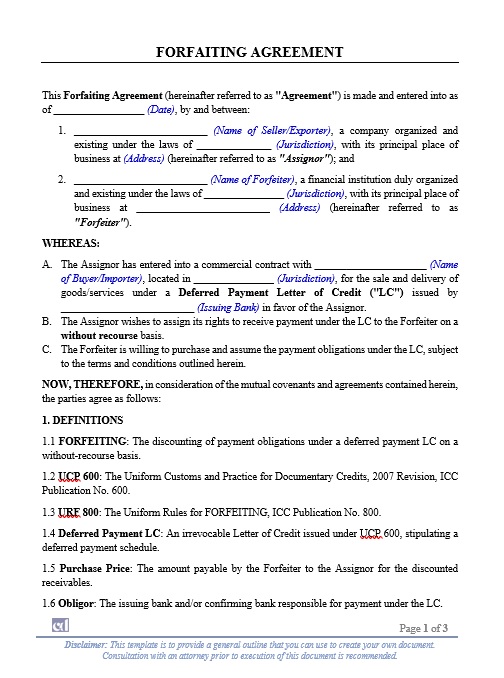Estimated reading time: 2 minutes
A Forfaiting Agreement contains is the provision of a trade finance method that allows exporters to obtain immediate cash by selling their medium and long-term foreign accounts receivable at a discount to a forfaiter, a specialized finance firm, or a department in a bank. This method helps businesses manage cash flow efficiently.
Moreover, it eliminates the risks associated with delayed payments from international buyers.

Features of Forfaiting Agreement
A forfaiting agreement involves several essential elements. First, the exporter sells accounts receivable to a forfaiter at a discount.
This allows immediate liquidity, reducing reliance on credit lines. Second, forfaiting agreements are typically without recourse, meaning the exporter bears no responsibility if the buyer defaults.
Additionally, these transactions are usually backed by bank guarantees, enhancing security for the forfaiter.
Benefits of Forfaiting for Exporters
Forfaiting offers several advantages to exporters. It provides immediate cash flow, improving working capital management. Additionally, since the agreement is without recourse, the exporter avoids the risk of default. Furthermore, forfaiting eliminates the need for continuous credit assessment of buyers. This simplifies financial operations and allows businesses to focus on growth opportunities.
Forfaiting vs. Factoring and Other Trade Finance Methods
Forfaiting and factoring are both trade finance methods but differ in key aspects. Factoring deals with short-term receivables, whereas forfaiting focuses on medium to long-term transactions. Factoring often requires recourse, while forfaiting is typically non-recourse.
Additionally, factoring is used in both domestic and international trade, while forfaiting is primarily applied in cross-border transactions.
Compared to other trade finance methods, forfaiting offers distinct advantages. Unlike traditional bank loans, which require collateral and credit checks, forfaiting finances receivables without additional liabilities for the exporter.
While letters of credit (LCs) guarantee payment upon meeting conditions, they do not provide immediate liquidity like forfaiting, which allows exporters to convert future receivables into cash upfront.
Check out more pages of our website for related content:
Access the Full Contract Directory Index
You can browse the complete alphabetical list of all commercial, financial, and project-based contract templates by visiting our A–Z Contract Index.
Reference:
- US International Trade Administration – Forfaiting
has been added to your cart!
have been added to your cart!



